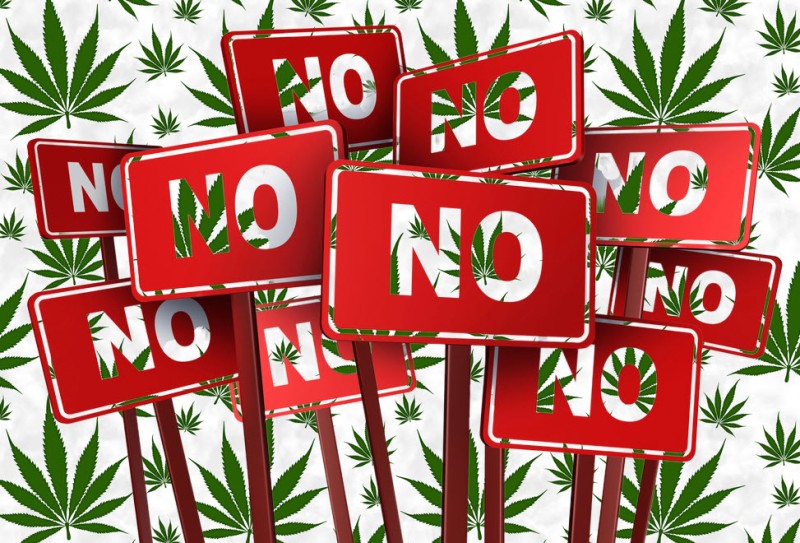
President-elect Donald Trump’s key appointments for roles in the Department of Justice, Centers for Disease Control and Prevention (CDC), and Food and Drug Administration (FDA) have sparked significant concern among cannabis advocates. Pam Bondi, Dave Weldon, and Dr. Marty Makary—Trump’s picks for Attorney General, CDC Director, and FDA Commissioner, respectively—have all expressed strong opposition to marijuana reform. Throw that in with Trump's VP, JD Vance, saying that all marijuana is laced with Fentanyl now, and you get the point. Their collective stances suggest a potential federal pivot toward stricter enforcement of cannabis laws and a rollback of progress made in marijuana legalization efforts.
Trump’s AG Pick Pam Bondi on Marijuana
President-elect Donald Trump’s reported consideration of former Florida Attorney General Pam Bondi for the role of U.S. Attorney General has drawn attention to her strong conservative stance on a range of issues, including her opposition to marijuana reform. As Florida’s top legal official from 2011 to 2019, Bondi consistently opposed the expansion of marijuana access, including medical cannabis, and worked to limit legalization efforts in the state.
Bondi was a vocal critic of Florida’s 2014 medical marijuana ballot initiative, which sought to legalize cannabis for patients with debilitating conditions. She argued that the measure’s language was too broad and could lead to widespread abuse, effectively turning the state into what she described as the "Wild West" of marijuana use. Her opposition contributed to the initiative falling short of the required 60% voter approval threshold. Although medical marijuana was later approved by Florida voters in 2016, Bondi maintained her cautious stance on the issue, emphasizing the need for strict regulations.
As Attorney General, Bondi also supported law enforcement actions targeting illegal marijuana operations and echoed concerns about cannabis being a potential gateway drug. If appointed as U.S. Attorney General, Bondi’s past actions suggest she could support stricter federal enforcement of marijuana laws, potentially clashing with states that have implemented broader legalization policies. Her approach aligns with a more traditional, anti-reform perspective on cannabis, signaling potential challenges for advocates of marijuana legalization under her leadership.
Trump’s Pick for CDC Director Claims about Marijuana
President-elect Donald Trump’s selection of former Congressman Dave Weldon (R-FL) to lead the Centers for Disease Control and Prevention (CDC) could mark a significant shift in the agency's stance on marijuana reform. While the CDC’s role in shaping federal cannabis policy is limited, it has recently taken steps to improve public access to information on marijuana use. Weldon, however, is a staunch opponent of reform, with a congressional record that includes voting against measures protecting state medical cannabis programs and supporting resolutions opposing medical marijuana legalization.
During his time in Congress from 1995 to 2009, Weldon repeatedly argued against marijuana's medical value. In a 2001 House subcommittee hearing, he dismissed medical cannabis as a "veiled attempt to legalize" recreational drug use, accusing advocates of exploiting vulnerable patients. As a physician, he claimed to have seen no legitimate medical indications for marijuana and suggested that smoking the drug could lead to lung cancer. Weldon also criticized the lack of global scientific research validating cannabis's medical potential, arguing that its absence undermined claims of its efficacy.
Weldon has also supported the gateway drug theory, asserting that marijuana use often precedes harder drug abuse despite the difficulty of proving causation. He maintained that interviews with heroin users indicate many began with cannabis, which he cited as evidence of its gateway effect. If confirmed, Weldon’s leadership could steer the CDC toward a more conservative approach to cannabis, potentially reversing recent efforts to provide balanced information on the drug's uses and risks.
Trump’s FDA Pick Thinks Marijuana Is a Drug That Causes Heart And Mental Health Problems
President-elect Donald Trump’s choice for Food and Drug Administration (FDA) commissioner, Dr Marty Makary, has expressed skepticism about medical marijuana, citing concerns about its links to cardiovascular problems and mental health risks in youth. He has also promoted the gateway drug theory, suggesting marijuana use can lead to the consumption of more dangerous substances. As the FDA plays a crucial role in shaping federal cannabis policy, Makary’s stance could influence the agency’s approach under the incoming administration.
Makary, a surgeon and medical commentator, has argued that modern cannabis is far more potent than in the past, raising potential health risks, particularly for adolescents. Speaking on the mindbodygreen podcast, he highlighted research suggesting a significant increase in the risk of psychosis later in life for teens who use marijuana. While he clarified that he was not making a statement about legalization itself, he emphasized that describing marijuana as entirely safe is inconsistent with scientific evidence. These views are also detailed in his book, Blind Spots, where he challenges claims that marijuana is harmless or not a gateway drug.
Additionally, Makary has disputed economic arguments for legalization, particularly the idea that it undermines illicit drug trafficking. He has contended that organized crime groups, including cartels and Chinese criminal organizations, continue to dominate marijuana sales in states like California, Oklahoma, and Kentucky. Makary further criticized these groups for exploiting workers in what he described as “a modern form of slavery on U.S. soil.” His appointment suggests a potentially more cautious and critical approach to marijuana policy within the FDA.







